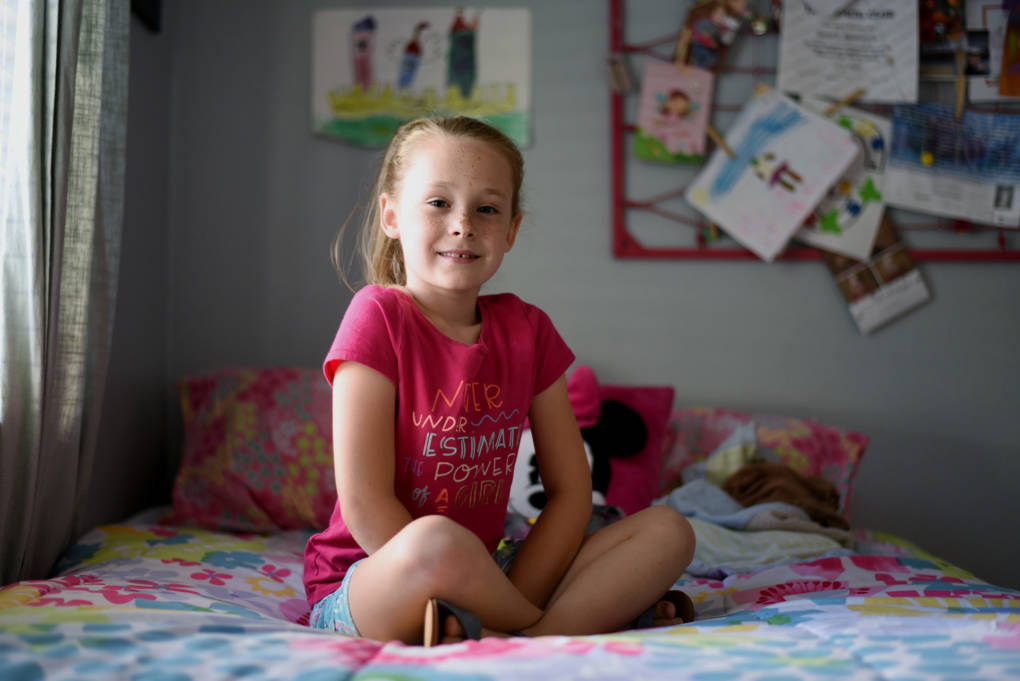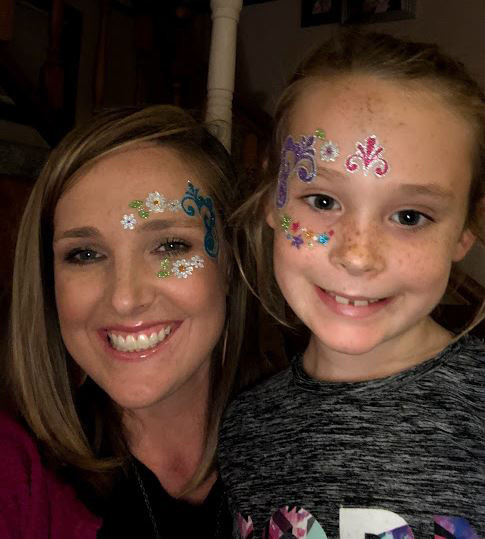Last year in the course of reporting the controversy over socially transitioning young transgender children, I met a mother, Molly, and her then-six-year-old transgender daughter, Gracie. (The family, which lives in the Bay Area, doesn't want their last name used for reasons of privacy.) Gracie had socially transitioned at the age of four.
A social transition is distinct from one that involves medical procedures like taking hormones or undergoing surgery. But even without a medical intervention, the decision by parents to allow their children to socially transition -- to publicly live in their new gender identity -- can be agonizing. Since Molly was so articulate in describing her emotional journey around her daughter's transition, from denial to acceptance to gratitude, we wanted to let her tell that story in her own words.
The following is an edited transcript of Molly's answers during our interview ...
'She Took Every Opportunity to Tell Us'
As soon as Gracie could tell us, it was, 'I'm a girl. I'm a sister. I'm a daughter. I'm that girl on that show. I'm that girl in that book. I'm the princess.' She took every opportunity to tell us she was a girl. She took every towel and blanket and turned it into long hair.
We would not let her leave the house with any of those things, so it was all behind closed doors. It felt really isolating because here you have this child who's showing you all these signs of not being the way you thought they would or that society tells you they should.
It was really, really hard. I don't think people realize when they think about kids this age that it isn't something that they just wake up and say one day, and then you're like, "Oh, that's what you want to be today? Great, like let's go explore that and let's be that." It's a battle. It's difficult as a parent to watch those signs develop in your child, and to know your child's life is going to be harder because of who they are. Because of society wanting them to fit somewhere that your child is telling you they don't.
Trucks, Dinosaurs and Superheroes
Early on, we tried to discourage Gracie's transgender identity, and we filled her world with trucks and dinosaurs and superheroes. We refused "girl things." Like, 'No, you can't be Elsa for Halloween. You have to be Superman. No, you can't have the dolls for Christmas. We're going to get you a pirate ship.' We just really tried everything we could. That's the part I'm ashamed of now.

'What If He Changes His Mind?'
There's a lot of advice out there about following your child's lead if they're telling you that this is how they feel. But I always felt like how can I just follow their lead when I'm the one that they're looking to set those boundaries and guidelines?
We went to an expert. We asked, 'What if we do this? What if we let our son walk into the world in a dress with fairy wings, and crowns, and high heels, and even just in regular girl clothes? What if we let him do all of this, and he gets to express himself, and then he changes his mind, and we just went through all of this for nothing?'
The therapist said: "That's not the question. The question is:
What if you don't do it?" She said, "What will happen, and what I'm hearing when you describe the insistence of Gracie, is you're going to end up with a child who's anxious and depressed and feels ashamed.
As soon as I knew there was even a chance that my kid could feel ashamed of who they are, there was no way. I had to support. I had to listen. I had to let her steer a little bit. Because there was no way I was going to raise a child who was ashamed of who they are. Period. My job is to set boundaries and guidelines, but it's also to teach them to be proud of who they are no matter what, and that's what we're doing.
On Making the Decision to Let Gracie Become a Girl
Before the transition, the most incredible moments of having a child were passing us by. Life seemed sort of lackluster. You never got to see that sparkle, or that magic of a Christmas morning or a Halloween. Or just regular day-to day-happiness.
I got to a point where I was like, I can't do it anymore. I need to see my child light up. We were at Marshalls one day and they had a display of children's Easter dresses. I just remember thinking, 'Oh crap. How am I gonna steer you away from this?'
My husband was with me and we both looked at each other. We told Gracie: "You can pick a dress." We let our then-son pick a dress, and Gracie would tear through the house to get to the dress the second she got home. For at least a year, she wore it all over the house . I just kicked myself for it taking so long to do that and to open the world to her like that. Also, for just caring so much about what other people would've thought.
Grief, Then Gratitude
There was a time when there was a lot of grief for me around the loss of the idea of my son. There was a point in time when I thought I may never recover from that. Now I look at pictures of Gracie as a baby and all I see is her face with the wrong haircut and the wrong clothes. It's completely shifted. There was a time when I didn't know that that would be possible.
But ultimately, my husband and I are both so grateful because this has given us the opportunity to lead more meaningful lives. Now we have this huge emphasis on teaching our kids about acceptance and tolerance, and being really proud of who you are and self-love. I hope that I would've emphasized those things anyway, but now there's no question.
I think that before the transition there was a part of Gracie that had to resign to whatever we told her, and so she was just sort of coasting.
Now she gets to really live.
